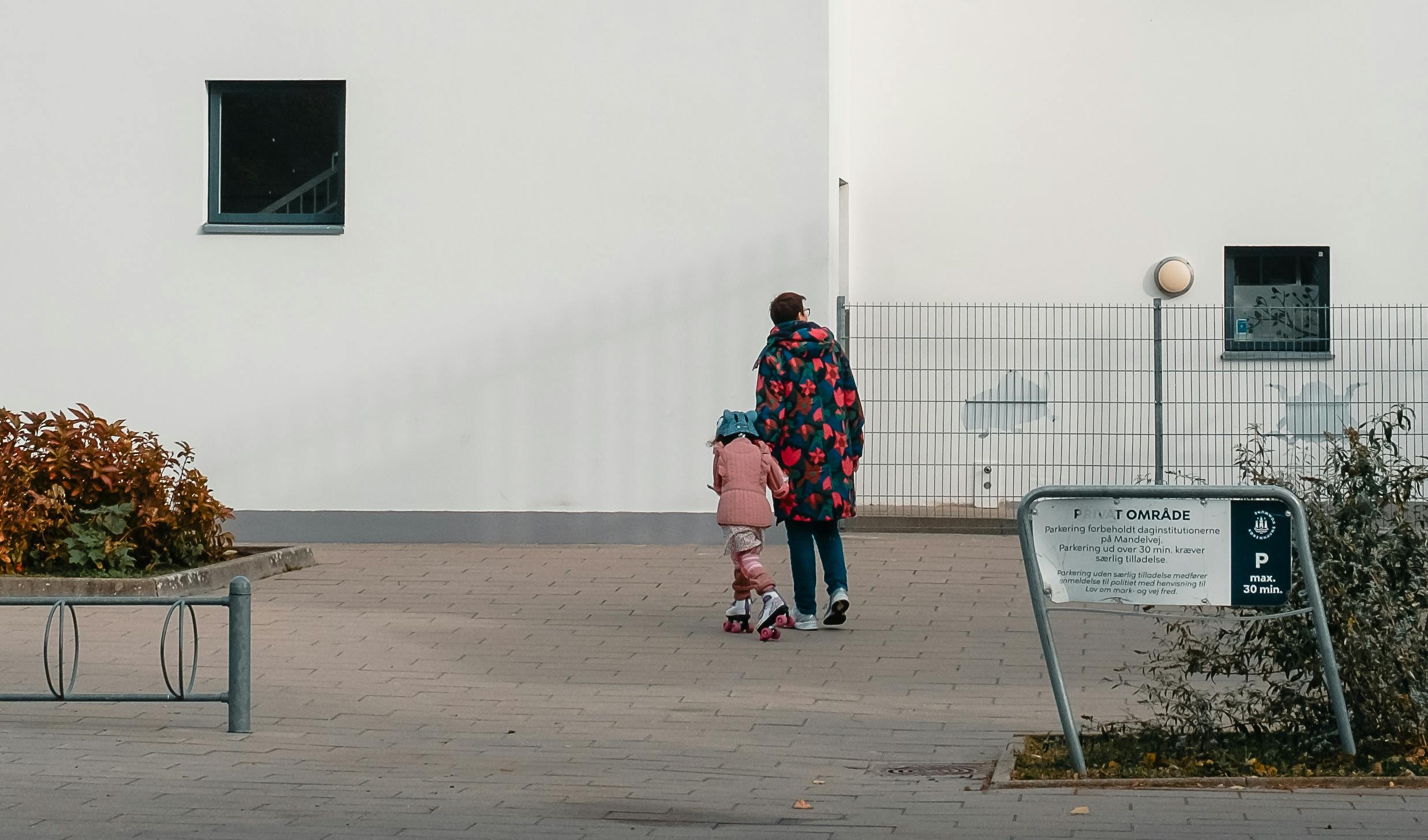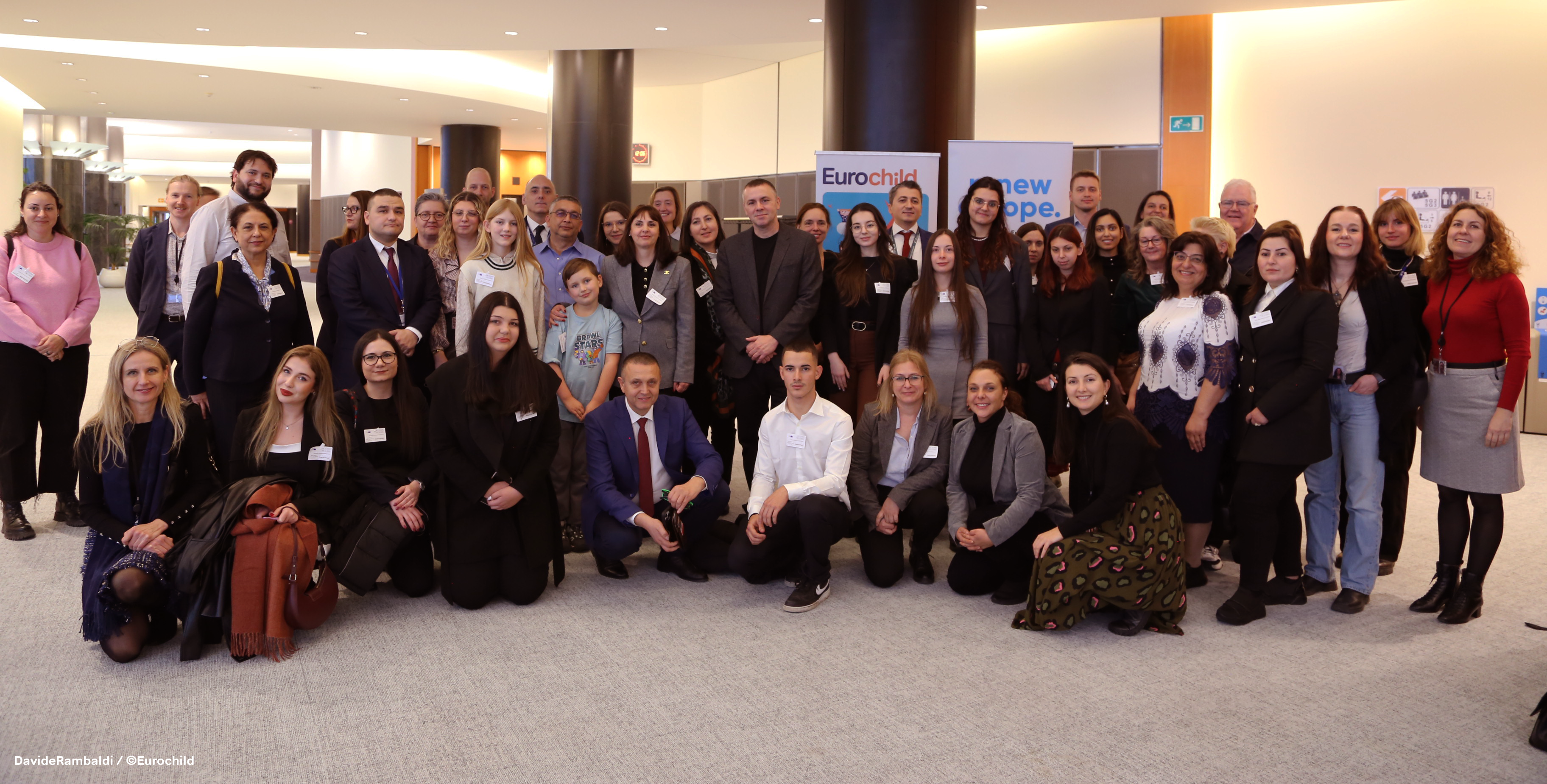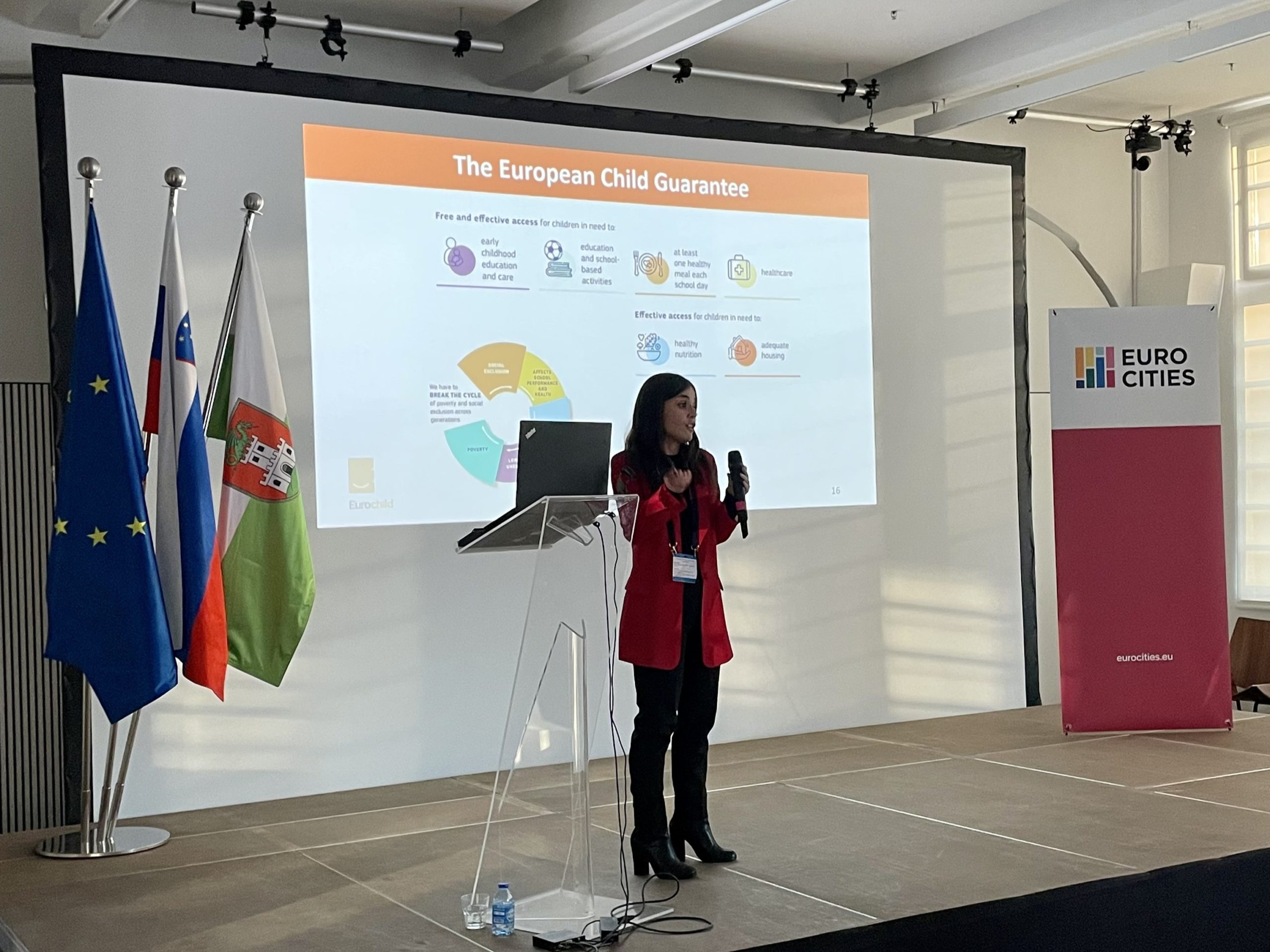Civil Society calls for better cooperation - Second anniversary of the Child Guarantee proposal
While several countries still need to submit their plans, civil society organisations and children across Europe should be consulted by decision makers to effectively fight the increasing levels of poverty.
Eurochild network welcomed the proposal of the European Child Guarantee published on 24 March 2021. It came out along with the European Strategy on the Rights of the Child, from which it is Thematic Area 2, and the European Pillar of Social Rights Action Plan, published earlier in the same month. Furthermore, the Commission’s proposal on a Council Recommendation establishing the European Child Guarantee materialized the 2013 Commission Recommendation on Investing in Children as well as the 2019 Political Guidelines of Ursula von der Leyen, President of the European Commission.
Eurochild has advocated for a specific instrument to tackle child poverty since 2015, when the concept of the Child Guarantee was first created in the European Parliament. The adoption of the European Pillar of Social Rights in 2017 paved the way for more targeted policies to address child poverty and social exclusion. The implementation is linked to the European Social Fund plus for 2021-27. The countries with a child poverty rate exceeding the EU average should spend 5%, and the other countries an appropriate amount of ESF+ for combating child poverty.
- Child poverty today
According to the latest Eurostat data, child poverty has increased from 24% to 24.4% from 2020 to 2021. 19.8 million children (24.4% of all children) in the EU are at risk of poverty and social exclusion. If such figures are difficult to quantify, then consider, in 2023, 1 in every 4 children in the EU is at risk of poverty and social exclusion. These children come from low-income households (particularly single-parent households). Also children with an ethnic and migration background, children with disabilities, and children in alternative care are at high risk of social exclusion. There are also children of imprisoned parents and homeless children.
The Covid-19 pandemic has exacerbated existing inequalities even further, and the increasing cost of living and energy crisis will likely push more children into poverty and some into extreme poverty. In many countries, new families have fallen below the poverty line since the beginning of the war in Ukraine[1].
- Child Guarantee - State of Play
As envisaged by the Council Recommendation establishing the European Child Guarantee, the Member States should develop national action plans that take into account national, regional and local circumstances as well as existing policy actions and measures to support the children most in need. As of 28 March 2023, 19 national Plans have been published, BE, BG, HR, CY, CZ, DK, EE, FI, FR, EL, IE, IT, LU, MT, NL, PL, PT, ES and SE. The RO draft is publicly available, awaiting final approval from the Government of Romania and then submission to the European Commission. The plans for AT, DE, HU, LT, LV, SK and SI are currently unavailable.
There have been significant delays in publishing the National Action Plans. No country met the original deadline of 15 March 2022. As explained by Child Guarantee National Coordinators, the delay was often caused by excessive consultation with other ministries as well as stakeholders such as NGOs and children. Child poverty has been overshadowed by other pressing issues or internal political turmoil in some countries.
The Plans vary in content, scope, and details in measures; some plans are more developed than others. The Child Guarantee constitutes a unique policy for some Member States to streamline all child-related policies and measures under one scheme. This concerns, among others, Bulgaria and Spain. For example, Spain has committed 11% of ESF plus and other resources to implement the comprehensive measures. For other countries such as France, the Child Guarantee is one of the many policies targeting children in need. Most plans address all target groups identified by the Child Guarantee. However, monitoring and evaluation processes are often described as work in progress, and some indicators were already identified. Furthermore, some countries propose to conduct further surveys to obtain more information about specific target groups of children.
- Civil society should have their say
Many countries have moved from the planning to the implementation stage. Building on the knowledge of the experiences of children, families and communities living in poverty and social exclusion, civil society organisations must play a crucial role in monitoring, designing, implementing and evaluating the measures/calls intended. When developing the Plans, most countries have consulted with civil society organisations. However, only a few countries have conducted meaningful consultations with children. The European Commission describes these Plans as ‘living documents’ that will be adjusted through their realisation. To update the Plans, in accordance with the needs of children at risk and to achieve the best outcomes, meaningful participation of civil society organisations and children must be ensured. This requires either developing a new mechanism or expanding the existing one with specific terms of reference and timeframe.
Civil society organisations and children’s participation can provide the lived experiences that decision makers need to ‘guarantee’ the Plans can break the cycle of poverty. Collaboration is the key to success.
For further information:
Child Guarantee National Action Plans at a glance
[1] Invisible-children-Eurochild-2022-report-on-children-in-need-across-Europe.pdf





